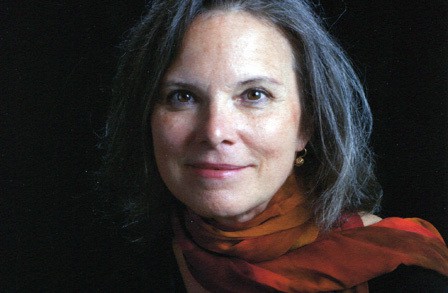Our November concerts kick off at Seton Hall and begins with a performance with poetry and readings by Carolyn Forché, so today, we’d like to introduce you to this wonderful poet:

Born in Detroit, Michigan in 1950, poet, teacher and activist Carolyn Forché has witnessed, thought about, and put into poetry some of the most devastating events of twentieth-century world history. According to Joyce Carol Oates in the New York Times Book Review,Forché’s ability to wed the “political” with the “personal” places her in the company of such poets as Pablo Neruda, Philip Levine, and Denise Levertov. An articulate defender of her own aims as well as the larger goals of poetry, Forché is perhaps best-known for coining the term “poetry of witness.” In her ground-breaking anthology, Against Forgetting: Twentieth-Century Poetry of Witness (1993), Forché described the difficulties of politically-engaged poetry: “We are accustomed to rather easy categories: we distinguish between ‘personal’ and ‘political’ poems…The distinction…gives the political realm too much and too little scope; at the same time, it renders the personal too important and not important enough. If we give up the dimension of the personal, we risk relinquishing one of the most powerful sites of resistance. The celebration of the personal, however, can indicate a myopia, an inability to see how larger structures of the economy and the state circumscribe, if not determine, the fragile realm of the individual.” Calling for a new poetry invested in the “social,” Forché’s anthology presented poets who had written under extreme conditions, including war, exile, and imprisonment. The anthology solidified her place as one of America’s most important and aware poetic voices.
Carolyn Forché is also a noted translator and teacher. Her translations of poets as various as Claribel Alegría, Georg Trakl, Robert Desnos and Mahmoud Darwish have won great critical acclaim. She has won numerous grants and awards, including fellowships from the Lannan Foundation and the National Endowment for the Arts. In 1997, she was presented with the Edita and Ira Morris Hiroshima Foundation Award for using her poetry as a “means to attain understanding, reconciliation, and peace within communities and between communities.” Hope J. Smith commented in the Madison Gazette that “Forché’s work is unusual in that it straddles the realms of the political and the poetic, addressing political and social issues in poetry when many poets have abandoned these subjects altogether. In recognizing the link Forché has made between these worlds, the Hiroshima Foundation recognizes her human rights work as much as it does her writing.”
Find out more at www.poetryfoundation.org!
| Thursday November 8, 2012 7:30 pm |
Classical Concert Series Seton Hall University South Orange Performing Arts Center South Orange, New Jersey Tel: (973) 313-2787 Program: |
